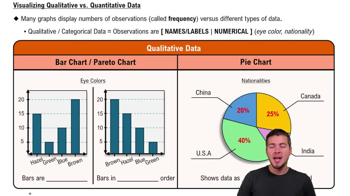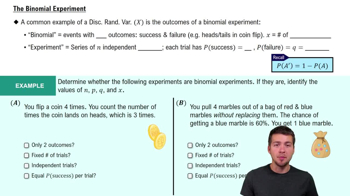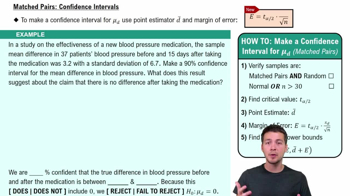Determine whether the data set is a population or a sample. Explain your reasoning.
The amount spent by every tenth person cashing out at a store
 Verified step by step guidance
Verified step by step guidance Verified video answer for a similar problem:
Verified video answer for a similar problem:



 2:13m
2:13mMaster Introduction to Statistics Channel with a bite sized video explanation from Patrick
Start learning